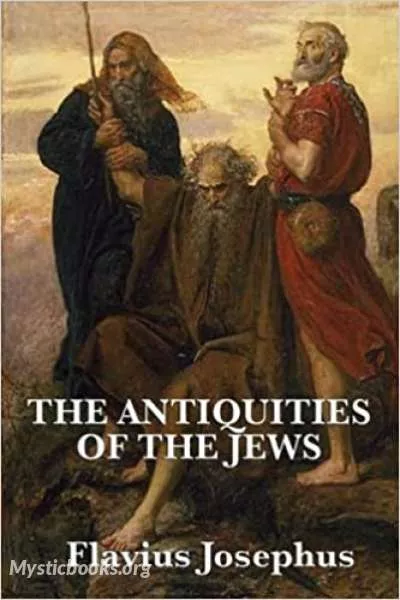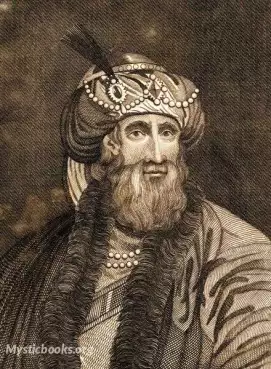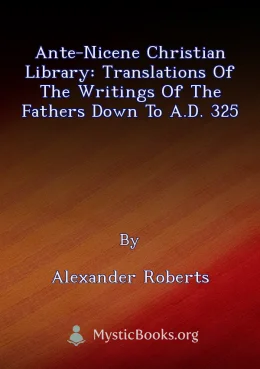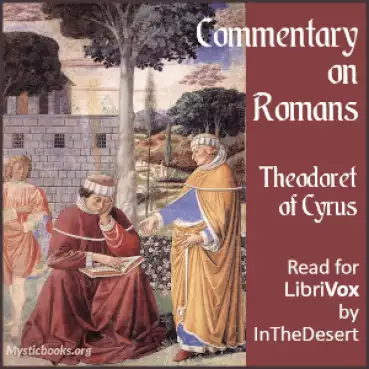
The Antiquities of the Jews, Volume 3
'The Antiquities of the Jews, Volume 3' Summary
Josephus' Judean Antiquities is a vital source for the history of the Intertestamental period and the Jewish war against Rome.
In the preface of Antiquities of the Jews, Josephus provides his motivation for composing such a large work. He writes:
Now I have undertaken the present work, as thinking it will appear to all the Greeks worthy of their study; for it will contain all our antiquities, and the constitution of our government, as interpreted out of the Hebrew Scriptures.
Josephan scholar Louis Feldman highlights several of the misconceptions about the Jewish people that were being circulated in Josephus' time. In particular, the Jews were thought to lack great historical figures and a credible history of their people. They were also accused of harboring hostility toward non-Jews, and were thought to be generally lacking in loyalty, respect for authority, and charity. With these harsh accusations against the Jews fluttering about the Roman empire, Josephus, formerly Joseph ben Matthias, set out to provide a Hellenized version of the Jewish history. Such a work is often called an "apologia," as it pleads the case of a group of people or set of beliefs to a larger audience.
In order to accomplish this goal, Josephus omitted certain accounts in the Jewish narrative and even added a Hellenistic "glaze" to his work. For example, the "Song of The Sea" sung by Moses and the people of Israel after their deliverance at the Red Sea is completely omitted in Josephus' text. He does mention, however, that Moses composed a song to God in hexameter—a rather unusual (and Greek) metrical scheme for an ancient Hebrew. Josephus also writes that Abraham taught science to the Egyptians, who in turn taught the Greeks, and that Moses set up a senatorial priestly aristocracy, which like Rome resisted monarchy. Thus, in an attempt to make the Jewish history more palatable to his Greco-Roman audience, the great figures of the biblical stories are presented as ideal philosopher-leaders.
In another example, apparently due to his concern with pagan antisemitism, Josephus omitted the entire episode of the golden calf from his account of the Israelites at Mount Sinai. It has been suggested that he was afraid that the biblical account might be employed by Alexandrian antisemites to lend credence to their allegation that the Jews worshiped an ass's head in the Temple (cf. Apion 2:80, 114, 120; Tacitus, Histories 5:4). He also made discredited allegations that the Ancient Egyptians forced the Jewish slaves to build the pyramids, writing “They [the Egyptian taskmasters] set them also to build pyramids.”.
Josephus also adds a short account of his personal life, Vita, as an appendix to the Judean Antiquities.
Antiquities of the Jews contains a good deal of valuable, sometimes unique, historical material. This applies, for example, to the history of the Hellenistic states, Parthia, Armenia, the Nabatean kingdom. Roman power, to the history of Rome's conquest of the states of Western Asia. It is no accident that in the Middle Ages and in modern times this book of Josephus was considered one of the most important sources in ancient Roman history, along with the works of Titus Livius, Tacitus, Suetonius, and one of the most erudite Christian authors of the 4th–5th centuries, Jerome called Josephus Flavius "Titus Livius of the Greeks".
The extant copies of this work, which all derive from Christian sources, contain two disputed passages about Jesus. The long one has come to be known as the Testimonium Flavianum. If genuine, it is an early extrabiblical record of Jesus, and as such is sometimes cited as independent evidence for the historical existence of Jesus.
Book Details
Language
EnglishOriginal Language
GreekPublished In
1544Genre/Category
Tags/Keywords
Authors

Flavius Josephus
Italy
Titus Flavius Josephus was a first-century Romano-Jewish historian who was born in Jerusalem—then part of Roman Judea—to a father of priestly descent and a mother who claimed royal ancestr...
Books by Flavius JosephusDownload eBooks
Listen/Download Audiobook
- Select Speed
Related books

Gottesfreundin by Karl Gjellerup
In seinem historischen Roman schildert der Literaturnobelpreisträger Karl Gjellerup die Geschichte zweier junger Menschen, die sich in einer Zeit reli...

With the Anzacs in Cairo by Guy Thornton
Guy Thornton's firsthand account of his experiences as a military chaplain with the Australian and New Zealand Army Corps (ANZAC) during World War I o...

Christmas and Christmas Lore by Thomas G. Crippen
This comprehensive reference work gathers together a wealth of historical and traditional information about the Christmas holiday. Drawing on sources...

Ante-Nicene Christian Library: Translations of the Writings of the Fathers Down to A.D. 325 by Alexander Roberts
The *Ante-Nicene Christian Library* is a collection of translations of writings by early Christian authors, predating the Council of Nicea in 325 AD....

The Chronicles of America Volume 07 - Dutch and English on the Hudson by Maud Wilder Goodwin
"Amidst the majestic Hudson River, an enthralling tale of cultural clash and historic rivalry unfolds. Discover the captivating saga of 'Dutch and Eng...

Commentary on Romans by Theodoret of Cyrus
"Of all the Fathers, who have composed works of different kinds, Theodoret is one of those who has been very happy in every one of them. There are som...

Pioneers of France in the New World by Francis Parkman
Parkman's biases, particularly his attitudes about nationality, race, and especially Native Americans, has generated criticism. The Canadian historian...

Witchcraft of New England Explained by Modern Spiritualism by Allen Putnam
The book delves into the history of witchcraft in New England, including the famous Salem Witch Trials of 1692. Putnam argues that many of the so-call...

King's Son, Or, a Memoir of Billy Bray by Frederick William Bourne
This biography recounts the life of Billy Bray, a renowned Cornish preacher known for his unconventional and passionate style of preaching. It follows...

Blessed Edmund Campion by Louise Imogen Guiney
Louise Imogen Guiney's 'Blessed Edmund Campion' is a biographical account of the life and martyrdom of Edmund Campion, a Jesuit priest who ministered...
Reviews for The Antiquities of the Jews, Volume 3
No reviews posted or approved, yet...